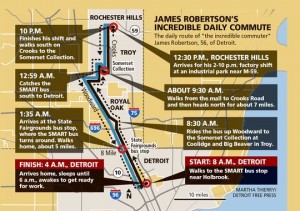Everyone wants a job they love. Everyone. The priorities might change from person to person, but if you asked someone, do you want a job you love, or a job you hate, 100% of people will give you the ‘Love’ answer.
There are some caveats. I might want a job that I love, but I also need a job that provides adequate pay and benefits. I’d love to a professional puppy petter, but I just don’t see anyone putting a high value on that job. I might want a job I love, but I also want to be close to my friends and family. While I would love working with injured dolphins on a remote island in the pacific, without my friends and family, that job would get old quick.
The one surefire way you get a job that you love is to want ‘that’ job for the right reasons.
Not because this ‘new’ job is better pay or benefits. Not because it’s in a warmer climate, or that my girlfriend lives nearby. That is not how you get a job you love. You’re just getting a job that fits some of your life criteria.
To get a job you love, you have to want it because that’s what you’ve always wanted to do your entire life. You have a path that shows you’ve wanted it your entire life. You’ve been working towards this job. If you walk the path, you have a much better chance of getting to the end.
I would love to coach the Los Angles Lakers. But, let’s face it, while I’ve wanted this most of my entire adult life, I’ve never put the work into pursuing this love job. I didn’t bust my butt coming up the coaching ranks. I wasn’t willing to travel around the world pursuing this passion. I wasn’t willing to make peanuts for years as I got experience.
The problem is people just want a job they love without the path. It doesn’t work that way. 99.9% of people don’t fall into jobs they love. They might start a job not knowing if they’ll love it, and go on the path, and find out that they actually do love it.
Want a job you love? Work for it. Show people that’s what you want through your actions and efforts. That’s the surefire way to get a job you love.

